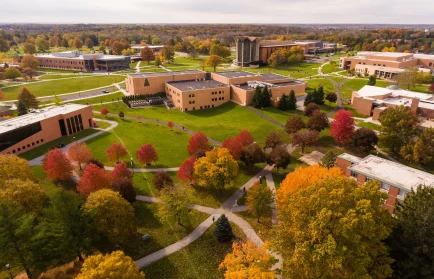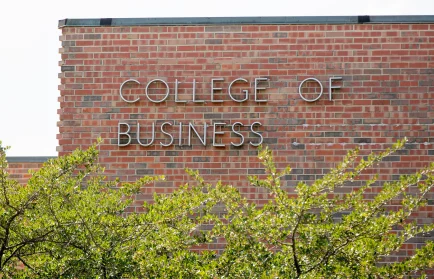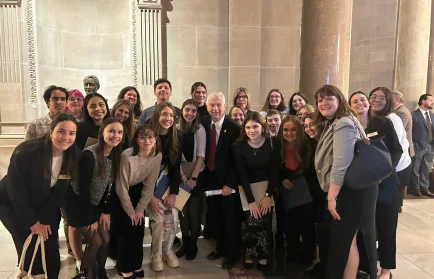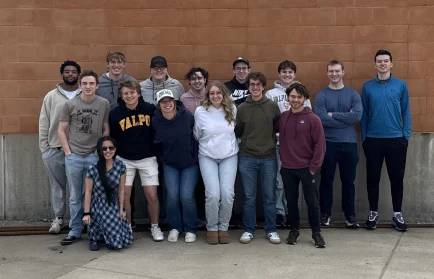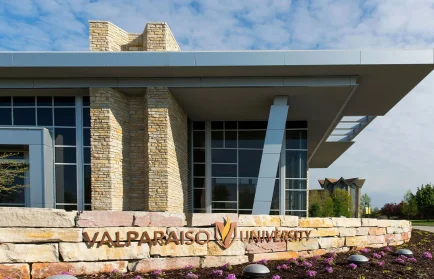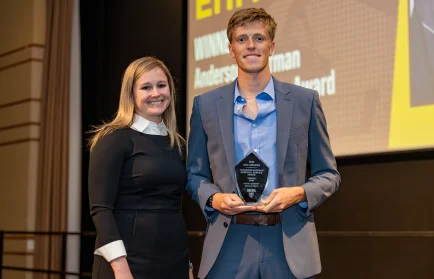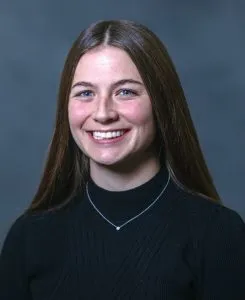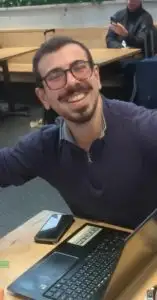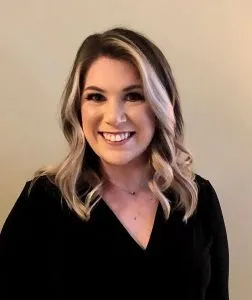Bachelor’s in Economics
Adali Johnson 20′
Senior Data Analyst at the Federal Reserve Bank of Boston
What have you been doing since you graduated from Valparaiso University?
Initially after graduation, I began working as a Research Assistant in the Monetary and Financial Market Analysis (MFMA) section of the Monetary Affairs division at the Federal Reserve Board of Governors. During my time there, I focused my research on determining the impact of discrepancies between second and microsecond timestamp granularity in the futures market with the goal to better gauge Treasury marketing functioning and liquidity provision across different instruments and trading platforms. In addition to research, I was heavily involved in policy-related responsibilities. I produced MFMA’s inputs for four rounds of FOMC meetings to assist the division director’s advisement of Jerome Powell at FOMC meetings. I worked on 6 briefings where I made charts to support our economists and division director in the pre-FOMC and FOMC preparations. I was the lead research assistant for the Monetary Affairs division in the February 2021 Monetary Policy Report. Additional projects included comparing sources for swaptions research, converting our core federal funds rate options probability distribution from Matlab to Python, and working on several additional projects related to the federal funds rate expectations and the prediction of federal funds rate cuts/hikes after FOMC meetings. Outside of research and policy work, I obtained a Professional Certificate in Data Science from Georgetown University in 2020, I was a member of the Board Ambassador team speaking to prospective RAs, i was on the Board outreach program where I was involved in 5 FRB campus recruiting events, I participated in FedEd which is the Board’s program for presenting economics topics to high schools where I presented 8 times, and I was a member of the
Inclusion Working Group. Following my time at the Board, I began working as a Data Analyst on the Data & Analytics team at the Federal Reserve Bank of Boston. While on this team, I have been fully-embedded on the Main Street Lending Program as their data analyst. This was a program created up during covid in order to lend additional funding to small to medium businesses and non for profits during economic hardships. Working with the MSLP team, I produce monthly and quarterly reporting that’s presented to the Board of Governors, fulfill requests from different governing bodies, help maintain our MSLP databases, and have created 10+ full data pipelines and interactive dashboards to guide decision-making. Outside of MSLP, I have continued working on bankwide initiatives that have required me to have advanced knowledge in Python, Gitlab, SQL, AWS, Athena, and R. In this capacity, I have been responsible for 10+ processes stretching several different departments and have frequently provided work to the Executive Committee at FRB Boston. While I’ve been at FRB Boston, I’ve also been able to take advantage of the academic assistance and obtained my Master of Computer Science from the University of Illinois at Urbana- Champaign.
How has your experience in the Economics department at Valparaiso University helped you to navigate your post-graduation academic or professional career?
The Valpo Economics department was instrumental in allowing me to get my foot in the door for opportunities within the Federal Reserve System. Academically, the coursework provided me with the level of introduction to programming skills that impressed several economists (SAS and R!) and provided me with enough research experience to be a well-suited candidate for an RA position. Specifically, my research for my paper Reducing NOx Emissions with Selective Catalytic Reduction in Environmental Economics, US Transatlantic Trade and Investment Partnerships from International Economics, Chicago Crime: How Not to Get Arrested in Econometrics, and Regression Analysis of FIFA Player Rankings in Applied Data Science. In talking to my peers at the Board, the number of projects, tools, and subjects I was able to broach in my time in undergrad was instrumental in setting me apart. It also provided me with the tools I needed to research on my own, think critically, and pick up new topics / tools very quickly making me very adaptable.
What Econ courses that you took as an undergrad were/are valuable during your time at VU and beyond?
I found all of my Economics courses to be incredibly valuable, but here is a condensed list of a few and why. ECON-338: Economics of Financial Markets that I took in my final semester helped immensely in terms of subject matter experience prior to starting my role as an RA in MFMA. ECON 473: Applied Data Science and Econometrics helped me work through the process of a full end to end economic research project. This was the course where we spent most of the semester working on a single final presentation / report and allowed me to see an entire end to end workflow. This gave me a great glimpse into future research thought processes, planning, and execution and exposed me to SAS which is a tool that was still used heavily in 2020 by economists I encountered at the Board. ECON-326: International Economics gave me enough subject matter expertise that I was able to get a request to join an International Finance department when applying for my RA position! I also greatly enjoyed the topic and remember several bits of information from this course specifically. ECON-210: Environmental Economics & Policy by far gave me the most hands-on work on the writing aspect of research. This course forced me to write a lengthy paper and effectively synthesize a topic I was previously unfamiliar with. This helped immensely in improving my ability to produce well-written bodies of research at the Board.
What advice do you have for current students aiming to follow in your professional path?
My best advice would be to make sure you take full advantage of the class work you complete in undergrad. Valpo Economics sets students up very uniquely in by the time you graduate you have several bodies of research to refer to on your resume. Whether it be short three-pagers, full-length research papers, or end to end projects, this work can all be used to boost your skills for the true economics work force and provide you with references for your resumes. I would highly recommend putting your best effort into all of these projects, regardless of their size because you never know when the work will come in handy topically or through the skills it helped you develop. Additionally, if a professor tells you that your cover letter isn’t strong enough, listen and rewrite it It might just get you a highly lucrative job at the Federal Reserve Board of Governors.
